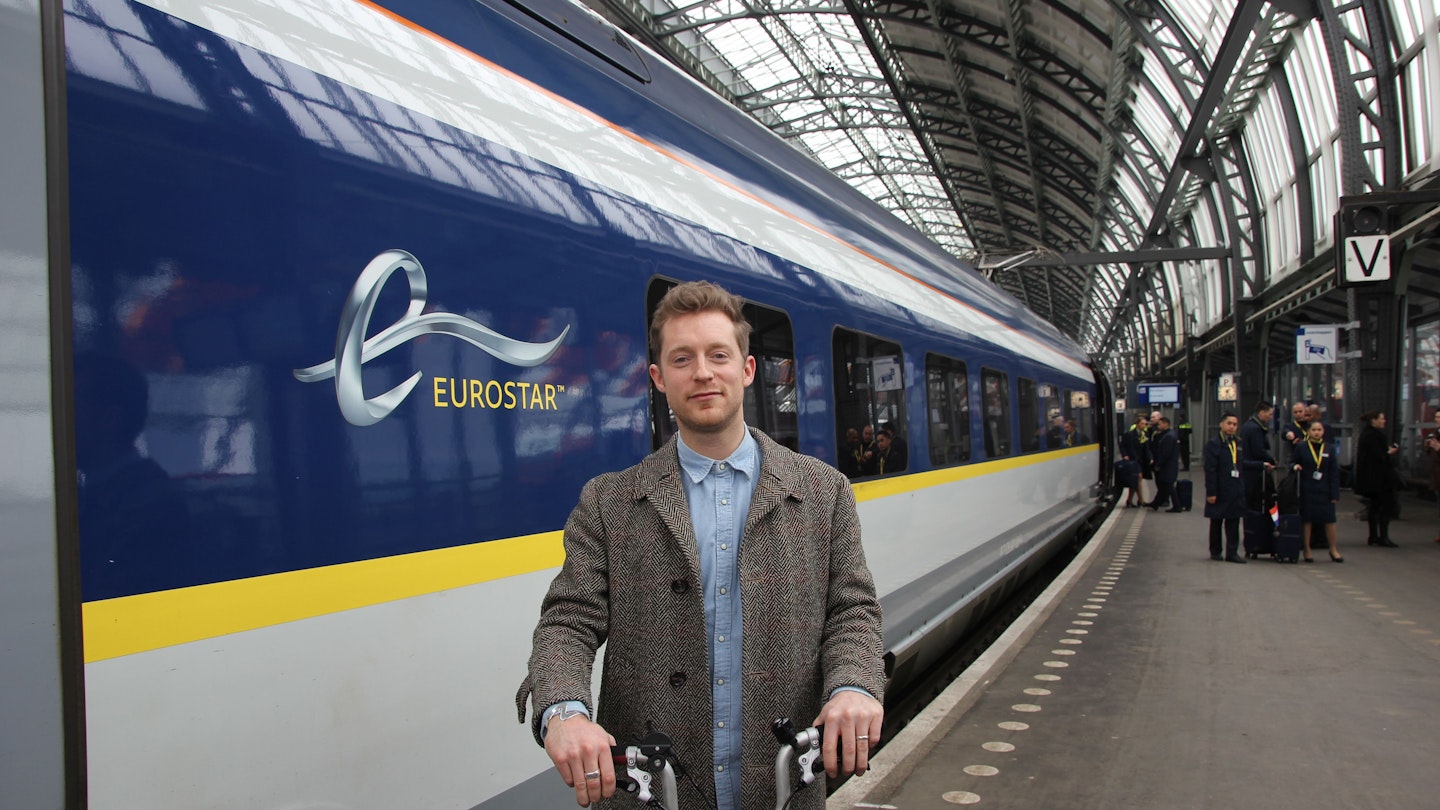Choosing Sustainable Travel: My Journey to Quitting Flying
Being a travel writer provides a privileged perspective on the world, and what I’ve seen lately has prompted me to quit flying. Here’s what made me rethink the way I travel and how I’ve made it work for me.

The seafloor is a good place to mull things over. It’s one of the last spots where you can truly disconnect; down there it’s just you, the fish, and your own thoughts. That’s probably why I like diving so much. On my most recent dive off the coast of Tioman Island in Malaysia, my thoughts involuntarily turned to the impact I was having on the ecosystem. There were lots of ghostly white corals down there, a sign the ocean was becoming too warm, probably due to climate change.
I reflected on the Great Barrier Reef, which was also suffering from bleaching, albeit on a much larger and more catastrophic scale. When I surfaced, I noticed an aeroplane flying overhead. I returned to the shore altered.
I had travelled on a plane to Malaysia from London; a 12,000-mile round trip that emitted around 1000kg of CO2 per passenger. Suddenly, flying looked like a habit I needed to quit.
That was nearly two years ago now. There have been a few crafty flights since, and, like the past habit, they left a bad taste. Gradually, I chose to prioritize train travel instead, as aviation is responsible for around 2.5% of global emissions and this figure is on the rise.
The Flight Shame Movement
During this period, I discovered Sweden’s flight shame (or flygskam) movement, which showed me I wasn’t alone in my feelings about flying. Others began questioning their relationship with air travel, and this has seemingly led to a slump in air traffic in Sweden.
While it is uncertain whether flygskam’s sister campaign, Flight Free UK, will achieve similar success in helping UK travellers quit flying, there are signs of growing awareness. Some 4500 travellers have signed the pledge, promoting the idea that impressive vacations don’t necessitate flying. Last month, UBS, a Swiss bank, noted that concerns about the environment could halve predicted growth in air traffic.

Fewer Planes, More Trains
The drop in air travel in Sweden has paralleled an increase in train usage across the country. This shift has prompted European train companies to expand their high-speed routes, which aligns perfectly with my preference.
Eurostar, for example, is pursuing a merger with its Franco-Belgian rival, Thalys, as part of their joint Green Speed project, enhancing connectivity between the UK and continental Europe. Additionally, renewed interest in Europe’s sleeper trains is creating an excellent opportunity for overnight travel, previously diminished by the convenience of low-cost flights.
How to Keep Travel Costs Down
One downside of reducing air travel is the associated costs. Often, flying can be cheaper, though exceptions exist. For instance, a recent train trip to the Côte d’Azur (Eurostar to Paris, TGV to Cannes) cost £70 more than a direct easyJet flight to Nice, taking two hours longer due to airport delays.
While I have learned to embrace the value of slow travel, I am still acutely aware of financial implications. It is encouraging to see European green parties advocating for subsidies for rail companies to create a more equitable travel environment. For now, I have discovered that booking tickets in advance is a strategic way to manage costs effectively. Though forward planning is not my strong suit, I have adapted my habits.
Quitting flying does not mean an end to spontaneity, however. Last-minute fares in Eastern Europe are still relatively affordable, and Interrail passes provide an excellent means for flexible and budget-friendly travel.

What I’ve Learned
Since choosing to forgo air travel, I have discovered that remarkable holidays don’t require planes. I have cycled along the Dutch coast, Interrailed around Northern Europe, and traveled to Scotland on the Caledonian Sleeper, enjoying immersive experiences along the way.
My Work was Positively Impacted
Interestingly, I now have more work than I did before quitting flying. Editors are supportive, offering assignments closer to home and compensating me for long-distance train travel. This support has greatly contributed to my continued success as a travel writer.
The Complicated Personal Side of Staying Grounded
Despite my commitment to staying grounded, I yearn to revisit Africa. Although it’s still conceivable, it raises ethical questions—especially since the survival of some of the world’s wildest places is tied to tourism. Should fewer people fly to these breathtaking destinations, it may complicate conservation efforts.
Furthermore, my brother lives in Canada, which presents challenges. At some point, I might find it necessary to temporarily lift my self-imposed flight ban. For now, however, amid our climate crisis, prioritizing ground travel feels like an essential choice for a sustainable future.





